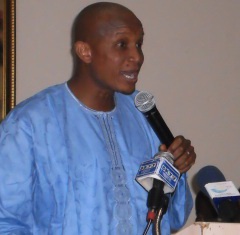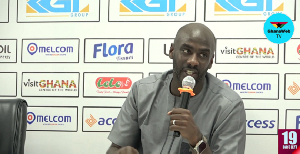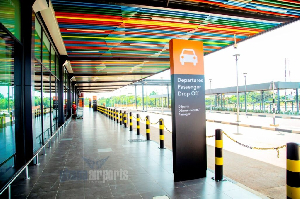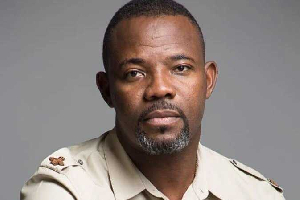Former Director of the Danquah Institute, a liberal policy and advocacy think-tank, Mustapha Abdul-Hamid has faulted the reaction of President John Dramani Mahama-led ruling National Democratic Congress (NDC) government to the protest march organized by aggrieved members of the Muslim Community in Sekondi-Takoradi earlier this year.
The Muslim Community in the Western Region on February 2015, it would be recalled, took to the streets of Sekondi-Takoradi to demonstrate against what they termed human rights abuses of Muslim students in the country.
It followed news reports that Muslim women and girls were being forced to take off their hijabs, a traditional scarf worn by Muslim women to cover their hair and neck and sometimes their face, to work and in schools.
President Mahama through the ministry of communication reacted sharply by condemning school authorities who were involved in the discriminatory act, threatening to sanction them.
But Mr. Abdul-Hamid in a presentation at the maiden edition of the Presbyterian University College of Ghana (PUCG) ‘Discipline Leadership’ lecture series wondered the basis on which government condemned authorities of such schools.
The lecture was held in Accra on Wednesday under the theme: “Inter-Religious Schooling And Christian-Muslim Relations in Ghana”.
He said even though it was prudent to reprimand authorities of schools that discriminate against students on religious grounds, it was also necessary for government to conduct in debt investigations into such reports before passing any comments.
According to him, it was a hasty decision by the President Mahama-led administration to condemn the school authorities and threaten to sanction them without knowing what the actual problem was.
Mr. Abdul-Hamid indicated that the ability of Christians and Muslims to coexist peacefully has implications for global peace.
According to him, the issue of building a more inclusive society has become more urgent in the modern world, urging school authorities not to discriminate against a child because of his/her religious affiliations.
Director of International Programmes at Columbia Theological Seminary in the USA, Prof. John Azumah who made the first presentation on the night, traced the history of inter-religious schooling in Ghana to as far back as the colonial era.
Prof. Azumah observed the need for Ghanaians to breakdown their diverse cultural barriers and engage one another through dialogue and do away with what he described as suspicion about secular education.
He also observed the need for Ghanaians to respect their religious differences at all times, saying “we need to humanize one another in the mosques, churches, Sunday schools, etc if we want a cohesive society in Ghana.”
This, he said, would bring about peaceful coexistence among the various religious groups and also help them to understand each other’s religion better.
Earlier in his welcome address, President of the Presbyterian University College of Ghana, Rev. Professor Adow Obeng indicated that the Leadership Lecture Series aims at providing a sound platform for academicians and opinion leaders to discuss critical national issues devoid of partisan politics.
He disclosed that PUCG as a Christian learning institution strongly believes that any confrontation between Christians and Muslims in the country could be detrimental to the peace and stability of Ghana, hence the organization of such a lecture series to enable the university add its voice to the numerous calls for peaceful co-existence between members of the various religious sects in the country.
In attendance were the 2016 presidential candidate of the New Patriotic Party (NPP), Nana Akuffo Addo, NPP’s General Secretary, Kwabena Agyei Agyepong, former Trade and Industry Minister, Kofi Konadu Apraku, Sheikh Armiyawo Shaibu, spokesperson of the National Chief Imam, Sheikh Nuhu Usman Sharubutu, the Moderator of the Presbyterian Church of Ghana, among others.
General News of Friday, 7 August 2015
Source: dailyguideghana.com
Mahama faulted over Christian-Muslim remarks
 Mustapha Abdul-Hamid
Mustapha Abdul-Hamid
















